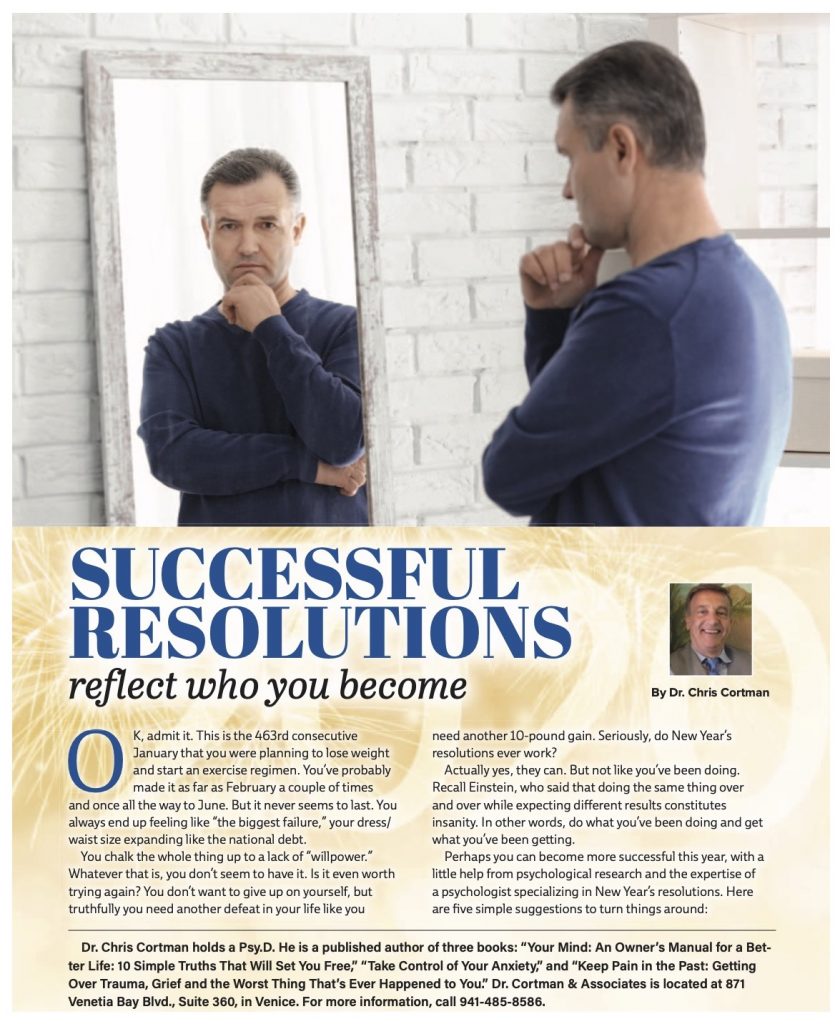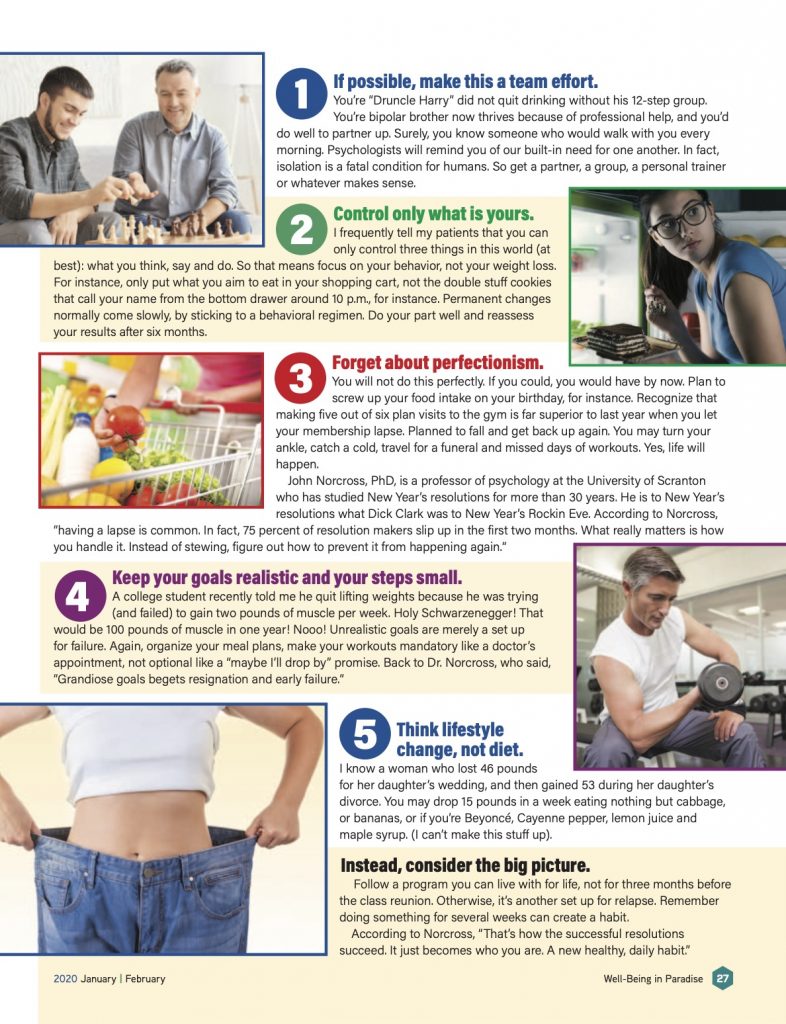Article written for the Venice Gondolier’s Well Being in Paradise Magazine | January/February 2020
Ok, admit it. This is the 463rd consecutive January that you were planning to lose weight and start an exercise regimen. You’ve probably made it as far as February a couple of times and once all the way to June. But it never seems to last. You always end up feeling like “the biggest failure,” your dress/waist size expanding like the national debt.
You chalk the whole thing up to a lack of “willpower.” Whatever that is, you don’t seem to have it. Is it even worth trying again? You don’t want to give up on yourself, but truthfully you need another defeat in your life like you need another 10 pound gain. Seriously, do New Year’s resolutions ever work?
Actually, yes they can. But not like you’ve been doing. Recall Einstein, who said that doing the same thing over and over while expecting different results constitutes insanity. In other words, do what you’ve been doing and get what you’ve been getting.
Perhaps you can become more successful this year, with a little help from psychological research and the expertise of a psychologist specializing in New Year’s resolutions. Here are five simple suggestions to turn things around:
1) if possible, make this a team effort. You’re “Druncle Harry” Did not quit drinking without his 12-step group. You’re bipolar brother now thrives because of professional help, and you’d do well to partner up. Surely, you know someone who would walk with you every morning. Psychologists will remind you of our built-in need for one another. In fact, isolation is a fatal condition for humans. So get a partner, a group, a personal trainer or whatever makes sense.
2) Control only what is yours. I frequently tell my patients that you can only control three things in this world (at Best): what do you think, say and do. So that means focus on your behavior, not your weight loss. For instance, only put what you aim to eat in your shopping cart, not the double stuff cookies that call your name from the bottom drawer around 10 PM, for instance. Permanent changes normally come slowly, by sticking to a behavioral regimen. Do your part well and reassess your results after six months.
3) Forget about perfectionism. You will not do this perfectly. If you could, you would have by now. Plan to screw up your food intake on your birthday, for instance. Recognize that making five out of six plan visits to the gym is far superior to last year when you let your membership lapse. Plan to fall and get back up again. You may turn your ankle, catch a cold, travel for a funeral and missed days of workouts. Yes, life will happen.
John Norcross, PhD, is a professor of psychology at the University of Scranton, who has studied New Year’s resolutions for over 30 years. He is to New Year’s resolutions what Dick Clark was to New Year’s Rockin Eve. According to Norcross, “having a lapse is common. In fact, 75% of resolution makers slip up in the first two months. What really matters is how you handle it. Instead of stewing, figure out how to prevent it from happening again.“
4)Keep your goals realistic and your steps small. A college student recently told me he quit lifting weights because he was trying (and failed) to gain 2 pounds of muscle per week. Holy Schwarzenegger! That would be 100 pounds of muscle in one year! Nooo! Unrealistic goals are merely a set up for failure. Again, organize your meal plans, make your workouts mandatory like a doctors appointment, not optional like a quote maybe I’ll drop by” promise. Back to Dr. Norcross, “grandiose goals begets resignation and early failure.“
5) Think lifestyle change, not diet. I know a woman who lost 46 pounds for her daughter‘s wedding, and then gained 53 during her daughter’s divorce. You may drop 15 pounds in a week eating nothing but cabbage, or bananas, or if you’re Beyoncé, Cayenne pepper, lemon juice and maple syrup. (I can’t make this stuff up). Instead, consider the big picture. Follow a program you can live with for life, not for three months before the class reunion. Otherwise, it’s another set up for relapse. Remember doing something for several weeks can create a habit.


